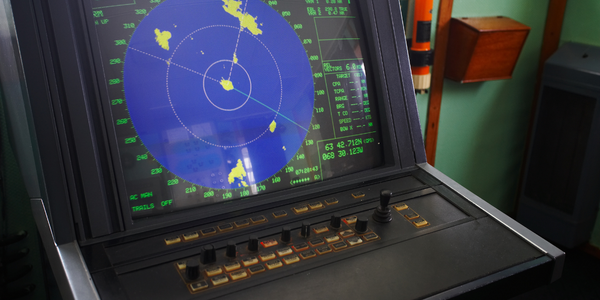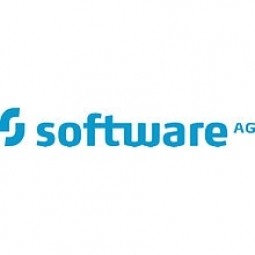公司规模
Large Corporate
地区
- Europe
国家
- Netherlands
产品
- webMethods ESB
- webMethods Broker
- webMethods BPMS
- webMethods Trading Networks
- CentraSite
技术栈
- SOA
- BPM
- ESB
实施规模
- Enterprise-wide Deployment
影响指标
- Cost Savings
- Productivity Improvements
技术
- 应用基础设施与中间件 - API 集成与管理
- 应用基础设施与中间件 - 中间件、SDK 和库
适用行业
- 海洋与航运
适用功能
- 商业运营
- 物流运输
用例
- 过程控制与优化
- 供应链可见性(SCV)
服务
- 软件设计与工程服务
- 系统集成
关于客户
DFDS Seaways is a leading European ferry and logistics company with operations distributed across Europe. The company transports more than 2 million ferry passengers and more than 1.2 million quay-to-quay and door-to-door movements per year. It employs more than 2,200 people in 38 offices in 13 countries. The company's vision is to be a leading, first-class, multi-modal short sea carrier. DFDS Seaways greatly relies on a central company information system to coordinate its massive transport of people and freight between many different destinations within Europe, across road and water.
挑战
DFDS Seaways, a leading European ferry and logistics company, was facing challenges with its outdated Enterprise Resource Management (ERP) system. The system, named Cosmos, was built in the early 1990s and had grown into more than 200 smaller and larger sub-applications. However, these applications lacked functional integration, had varying user interfaces, and required regular data re-entry. The complexity of Cosmos had become so great that DFDS Seaways faced growing maintenance problems. Documentation was often outdated, and a lot of business logics were recorded in hard-to-change stored procedures. The company also faced performance problems with the Web front-ends, hindering customers from making reservations via the Internet.
解决方案
DFDS Seaways decided to replace its outdated ERP system with a Service-Oriented Architecture (SOA) using the webMethods suite. The company subdivided the old system’s functionality into a series of logically ordered sub-functions, such as transport management or invoicing. These functions were provided by standard software packages, which were integrated via the webMethods Enterprise Service Bus (ESB). The company also used webMethods Trading Networks, a B2B gateway based on the webMethods ESB, to manage communication between parts of the new system and applications used by partners acting as ticket or freight space retailers.
运营影响

Case Study missing?
Start adding your own!
Register with your work email and create a new case study profile for your business.
相关案例.

Case Study
Drill ship power challenge: hybrid solution solves distribution issues
Aspin Kemp & Associates (AKA), a manufacturer of electrical power and control systems headquartered in Montague, PEI, encountered one with its hybrid power initiative, the first hybrid drill floor destined for installation on ultra-deepwater drill ships operated by Transocean, Swiss offshore drilling contractors. Since on-site modification was impossible and scrap recycling of any modifications was unacceptable, the enclosures had to arrive ready-to-install.

Case Study
Ensures Tanker Safety and Emissions Compliance
Storage tanks are irregular in shape and a certain amount of mathematical modelling is required to get an accurate representation of volume and, more importantly, the weight of material in each tank. In addition, countries have different emission regulations, so the ships position needed to be accurately known in order to geotag emission data.

Case Study
Real-time Networked Sonar System for Ships
A multinational, knowledge-based corporation that delivers marine electronics solutions is utilizing industrial Ethernet technology to help ensure that operations at sea are dependable and optimal. Based in Europe, the company has nearly 4000 employees working in 20 countries around the world, and produces high-tech systems for offshore oil and gas operations, merchant marine systems, and various applications for the defense and aerospace industries. The company produces products and systems used by merchant vessels and offshore installations for positioning, navigation, automation, as well as for surveying and monitoring the seabed, and for fishing vessels and fi sheries research. As one of the major suppliers of high quality marine electronics in the world, their products include chart plotters for yachts, triple redundant dynamic positioning systems for oil drilling rigs, and sonar and instrument systems for scientifi c research vessels. Products used for marine applications must be rugged enough to endure the corrosive effects of salt water, and be able to withstand excessive amounts of vibration and shock. For this reason, the company only uses DNV and GL certified products and components to ensure that their systems can meet the high standards required by the maritime industry.

Case Study
Fleet Management Connectivity Solution for Marzam
Marzam, in order to ensure the best service, invested 3 million dollars in the construction of 2 fuel oil tanks with 40k gallons and 10k gallons capacity each, located in Manta, Ecuador. The customer needs to keep fleet operations going with fuel available at all times in order to guarantee quality of service. KEY ELEMENTS FOR THE CUSTOMER: Real-time level monitoring: Tank infrastructure remote level monitoring. Configure alerts and notifications when reaching critical values to avoid the need for emergency refills and optimize supply schedules. Real-time consumption monitoring: The customer needed an easy way to monitor in real-time accurate values of consumption.

Case Study
Mitsubishi Electric's Edge Computing Solution Powered by Wind River VxWorks
Mitsubishi Electric Corporation, a global leader in factory automation (FA) applications, identified edge computing as a critical component of the Industrial Internet of Things (IIoT). The company aimed to enhance device and data security, reduce data traffic to the cloud, and enable faster response to network or device issues. In 2018, Mitsubishi Electric launched its first line of industrial hardware products designed for edge computing, the MELIPC Series. The primary development goals for MELIPC were to support the type of edge computing promoted by Mitsubishi Electric and to introduce advanced vision technology for device control. The flagship computer of the MELIPC line, the MI5000, was designed to combine real-time equipment control with high-speed data collection, processing, diagnosis, and feedback in a single machine. However, the development team needed a real-time control platform that could seamlessly integrate real-time control with proven analytic and diagnostic applications.

Case Study
Migrating to Software-Only Licenses for More Responsive License Management
The world’s premier shipping companies work with the software solutions of ABB Marine & Ports to get their vessels safely and efficiently to their destinations. A loyal customer of Wibu-Systems for over a decade, ABB has been relying on CodeMeter dongles to store the license keys for their ABB AbilityTM Marine Advisory System - OCTOPUS.The current version of the system is using Wibu-Systems’ robust metal-case CmStick ME, a perfect choice for the rugged conditions at sea. As satellite communications has made fast Internet connections at sea a common reality for maritime operators, the company is looking to move from physical to software solutions to streamline its logistics processes.



